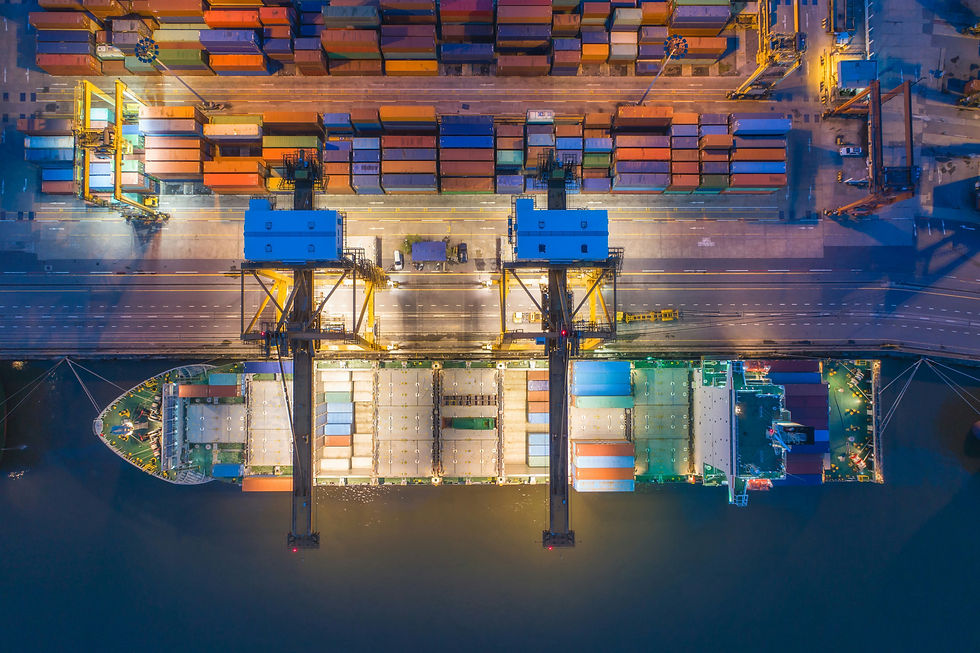Progress or Pitfall? Michelle Schulz Breaks Down the U.S.-EU Trade Deal on Bloomberg
- Schulz Trade Law

- Jul 28, 2025
- 3 min read

Progress or Pitfall?
Michelle Schulz Breaks Down the U.S.-EU Trade Deal on Bloomberg
July 28, 2025
Founder of Schulz Trade Law Highlights Key Risks and Realities Behind the Headlines.
A Deal Without Details
Businesses Left Guessing
In a recent appearance on Bloomberg TV’s Balance of Power, Michelle Schulz, Founder and Managing Partner of Schulz Trade Law, unpacked the implications of the newly announced U.S.–EU trade agreement.
While the headline number—15% tariffs on 70% of products—offers a veneer of certainty, Schulz emphasized that the deal lacks the essential fine print businesses need to plan confidently.
“I do not believe it's exactly enough information to make decisions based off of,” Schulz stated, pointing to continued 50% tariffs on steel, aluminum, and copper—even including derivatives. “This is still an increase.”
For importers navigating aerospace, oil and gas, and luxury goods, that ambiguity means costly delays and constant pivots. Without itemized guidance—such as HTS codes explicitly identifying tariff applicability—many firms remain in limbo.

The Onshoring Illusion
Shifting Supply Chains Comes at a Cost
The deal may attempt to encourage onshoring, but according to Schulz, that’s easier said than done.
The reality? Domestic alternatives often don’t exist, and when they do, ramping up production or replacing European and Chinese suppliers can take years.
“If they’re available at all, it takes a very long time,” she explained. “We have clients pivoting from China to Vietnam or Mexico, only to be hit with new tariffs there too.”
The business community’s balancing act—juggling rising costs, shifting suppliers, and fragile geopolitical dynamics—continues with little relief in sight. Schulz warns that persistent tariff hikes could force some businesses to shut their doors.

Tracing Tariffs and Trust
Compliance in a Murky Global Market
One of the more urgent challenges Schulz addressed is the growing complexity of tracing goods through global supply chains.
With rising enforcement against transshipped goods and forced labor concerns, companies must now conduct multilayered due diligence down to their suppliers’ suppliers.
“We’re using at least three software tools to verify supply chains. You can’t always trust the paperwork,” she cautioned.
Schulz noted that even as optimism lingers, the lack of formalized agreements—particularly around critical sectors like aircraft—leaves allies frustrated and companies exposed.
“This is a deal in the sense of a deal,” she said. “But the level of detail simply isn’t there yet.”
Don't Navigate These Shifting Trade Currents Alone
If your business is facing challenges with the latest U.S.–EU trade deal, tariffs, or supply chain compliance, Schulz Trade Law is here to help. Led by Michelle Schulz, our team specializes in regulatory clarity, strategic import/export decisions, and real-time risk assessment.
Contact us today to move from uncertainty to strategic advantage.
Subscribe to receive updates.

About Us
We are a dedicated team of trade law professionals, committed to helping businesses navigate the complexities of international regulations and tariffs. With deep industry knowledge and a client-first approach, we provide clear, actionable insights to protect your interests and drive success in a dynamic global market.
Contact Us
Stay ahead of trade law changes!
Contact us today for guidance on tariffs and regulations to safeguard your business.








Comments